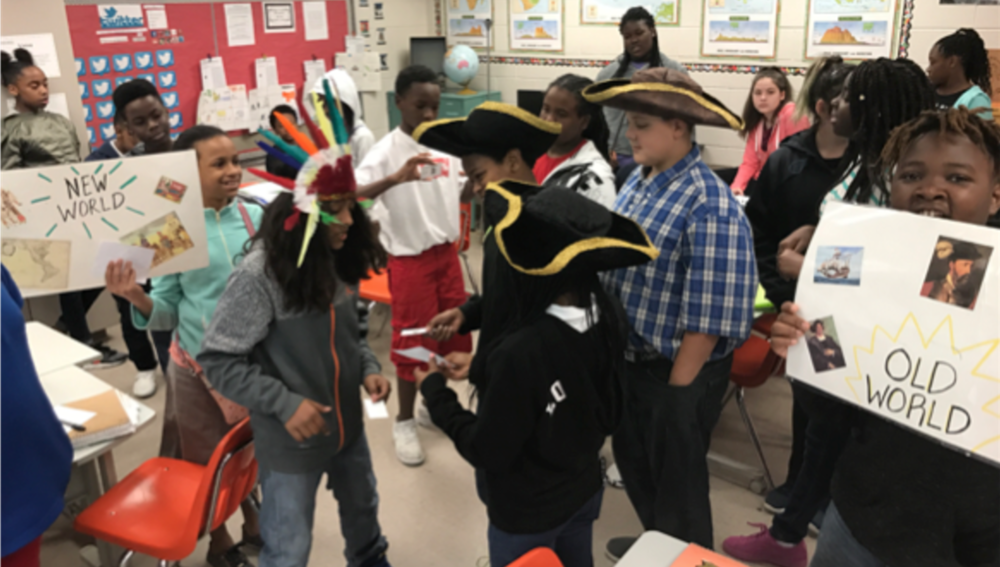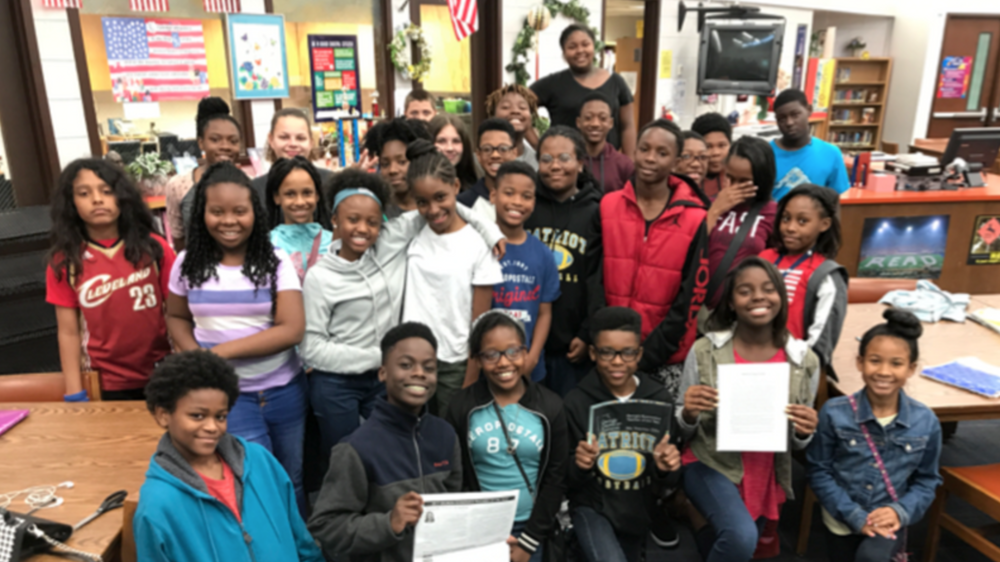
Section Branding
Header Content
2017 Georgia Economics Teacher Of The Year: Spicing Up Bland Content!
Primary Content

Teaching social studies in sixth grade means covering the geography, history, government and economics of Europe, Latin America, Canada and Australia. That is A LOT of information to cover in a school year! In college, I majored in history so I love to teach my students about people, places and events of the past. But what about domains that are, on the surface, not so interesting?
Content is like a piece of raw meat. Teachers can either serve it as is or spice it up. Our passion, enthusiasm, knowledge and innovative teaching strategies are our seasonings. Some of what we teach is naturally flavorful. But some topics need everything on the spice rack! For me, that was economics.
I am very passionate about teaching. I absolutely love what I do. I am fired up every day I come to work and step before my students. I get so excited the night before I introduce a new activity that sometimes I can’t even sleep! My enthusiasm comes from three areas: a passion for my subject, a passion for my profession and my personal passion for the arts. I draw upon these passions when I plan instruction and my lessons are a reflection of the things I love. The teaching tools that enhance my social studies classes include educational raps, interactive student notebooks and role-playing simulations.

My economics activities, however, were lacking the same flavor as my geography, history and government activities. Thankfully, I came across the Georgia Council on Economic Education (GCEE), the organization that selected me as a Georgia Economics Teacher of the Year. The council helps teachers teach economics by creating innovative instructional materials and disseminating those materials through teacher workshops at no cost to the teacher or school. It was at my first GCEE workshop back in 2012 that I learned how to spice up economics.
Immersing students in the learning and making them the central part of the lesson tends to be the most powerful of my strategies because students are actively involved in the learning, not just passively absorbing it. Taking my own advice I dove right in, immersing myself in the economics section of the sixth grade Georgia Performance Standards (now Georgia Standards of Excellence). I took what I learned at the workshops, mixed it together with my personal and professional passions as well as my existing teaching strategies to develop creative methods to teach those standards. One way was through rap music. I made a list of all the vocabulary and concepts students must learn and then wrote a song incorporating all of those terms in “Imports and Exports.” I teach the song in class and students keep a copy of the lyrics in their interactive student notebooks. There is also a video version on YouTube for students to learn the lyrics at home.
Once students have mastered the vocabulary, they can then apply it in more rigorous activities such as role-playing simulations. To teach about the North American Free Trade Agreement (NAFTA), I use a lesson that I obtained at a GCEE workshop. Students research NAFTA record their evidence of learning in their interactive student notebooks. They assume different roles of and carry out functions of NAFTA as it applies to a fictitious multi-national aerospace company. For each country, students walk into the classroom to the national anthem of that country. When they are in Canada, they design the airplane. The wings and tail of the plane are made in Mexico and the plane is assembled and tested in the United States.
I want my students to be challenged, engaged and have fun. I also want them to develop a love for learning just as I have. While my students are learning and having fun, they are inevitably being prepared for their future as producers, consumers and workers. I am thankful to the Georgia Council on Economic Education for its workshops and resources that brought my economic units to life. In preparation for the new school year I challenge you to take a look at your own curriculum. Are there topics you teach that could use a little spicing up? Tap into your personal and professional passions by asking: “Why did I become a teacher?” “What do I love most about the subject(s) I teach?” “What do I enjoy doing outside of teaching?” Find workshops and or resources that incorporate your passions so that you can bring joy, excitement and enthusiasm every day to your students!






